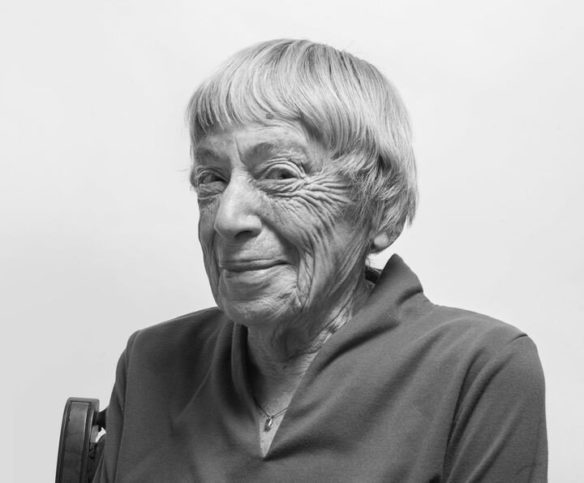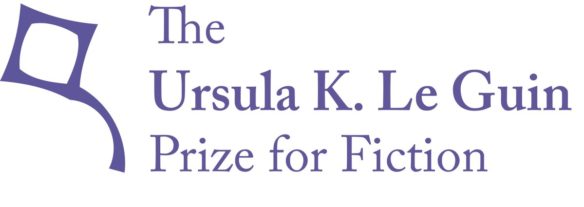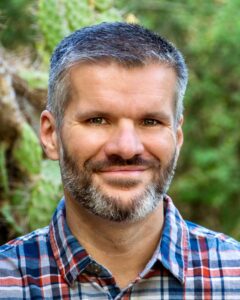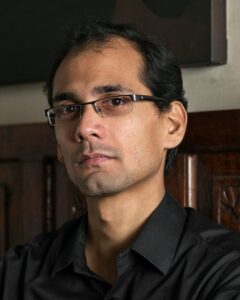
All are welcome to nominate work for the Ursula K. Le Guin Prize for Fiction between now and March 31.
The Prize is given to a writer whose book reflects the concepts and ideas that are central to Ursula’s own work, which include (but are not limited to): hope, equity, and freedom; non-violence and alternatives to conflict; and a holistic view of humanity’s place in the natural world.
The winner receives a $25,000 cash prize. To be eligible for the 2025 Prize, a work must be:
- A book-length work of imaginative fiction written by a single author.
- Published in the U.S. in English or in translation to English. (In the case of a translated work winning the Prize, the cash prize will be equally divided between author and translator.)
- Published between April 1, 2024, and December 31, 2024.
- Available for purchase in the U.S. via multiple retail channels.
The Prize also gives weight to writers whose access to resources, due to race, gender, age, class or other factors, may be limited; who are working outside of institutional frameworks such as MFA programs; who live outside of cultural centers such as New York; and who have not yet been widely recognized for their work.
Additionally, any use of large language models/“AI” in the creation of a work must be disclosed. Works with undisclosed use of large language models/“AI” may be disqualified.
Read more about the prize and eligibility requirements here.
The members of the 2025 selection panel are authors Matt Bell, Indrapramit Das, Kelly Link, Sequoia Nagamatsu, and Rebecca Roanhorse. The judges’ biographies follow the jump.


Matt Bell is the author most recently of the novel Appleseed (shortlisted for the 2022 Ursula K. Le Guin Prize for Fiction) and the craft book Refuse to Be Done, a guide to novel writing, rewriting, and revision. He is also the author of the novels Scrapper and In the House upon the Dirt Between the Lake and the Woods, as well as the short story collection A Tree or a Person or a Wall, a non-fiction book about the classic video game Baldur’s Gate II, and several other titles. His writing has appeared in The New York Times, Esquire, Tin House, Fairy Tale Review, American Short Fiction, Orion, and many other publications. A native of Michigan, he teaches creative writing at Arizona State University.

Indra Das, aka Indrapramit Das, is a writer and editor from Kolkata, India. He is a Lambda Literary Award-winner for his debut novel The Devourers (Penguin Random House), and a Shirley Jackson Award-winner for his short fiction, which has appeared in publications including Tor.com, Clarkesworld, and Asimov’s Science Fiction, and has been widely anthologized. He completed his MFA at the University of British Columbia in Vancouver and was an Octavia E. Butler Scholar at the 2012 Clarion West Writers Workshop. His latest books are the Locus Award-nominated and British Fantasy and Subjective Chaos Kind of Award-winning novella The Last Dragoners of Bowbazar (Subterranean Press) and the anthology Deep Dream: Science Fiction Exploring the Future of Art (MIT Press). He currently resides in his hometown.

Kelly Link is the author of the collections Stranger Things Happen, Magic for Beginners, Pretty Monsters, Get in Trouble, and White Cat, Black Dog, and the novel The Book of Love. Her short stories have been published in The Magazine of Fantasy & Science Fiction, The Best American Short Stories, and Prize Stories: The O. Henry Awards. She was a 2018 MacArthur Fellow and has received a grant from the National Endowment for the Arts. She and Gavin J. Grant have co-edited a number of anthologies, including multiple volumes of The Year’s Best Fantasy and Horror and, for young adults, Steampunk! and Monstrous Affections. She is the co-founder of Small Beer Press and co-edits the occasional zine Lady Churchill’s Rosebud Wristlet. She is the owner of Book Moon, an independent bookshop in Easthampton, MA.
Link was born in Miami, Florida. She currently lives with her family, dog, and chickens in Northampton, Massachusetts.

Sequoia Nagamatsu is the author of the National Bestselling novel How High We Go in the Dark, a New York Times Editors’ Choice, and the story collection Where We Go When All We Were Is Gone. His work has appeared in publications such as Conjunctions, The Southern Review, ZYZZYVA, Tin House, Iowa Review, Lightspeed Magazine, and One World: A Global Anthology of Short Stories.
Other honors include a fellowship from the Bread Loaf Writers Conference and shortlist inclusions for The Waterstones Debut Fiction Prize, the Ursula K Le Guin Prize, and the Barnes & Noble Discover Prize. He was educated at Grinnell College (BA) and Southern Illinois University-Carbondale (MFA). He teaches creative writing at Saint Olaf College and the Rainier Writing Workshop. Originally from O’ahu, Hawai’i and the San Francisco Bay Area, he currently lives in Minneapolis with his wife, the writer Cole Nagamatsu; their cat, Kalahira; their real dog, Fenris; and a Sony Aibo robot dog named Calvino. He is at work on two other novels.

Rebecca Roanhorse is a New York Times bestselling and Nebula, Hugo, and Locus Award-winning speculative fiction writer. She has published multiple award-winning short stories and novels, including The Sixth World Series and the epic fantasy trilogy Between Earth & Sky. She was the guest editor of America’s Best Science Fiction & Fantasy (2023) and a contributor to the New York Times “100 Best Books of the 21st Century.” She has also written for Marvel and Lucasfilm, and her TV writing includes FX’s A Murder at the End of the World, and the Marvel series Echo for Disney+. She has had her own work optioned by Paramount, Amazon Studios, Netflix, and AMC Studios. She currently resides in Northern New Mexico.
Discover more from File 770
Subscribe to get the latest posts sent to your email.
